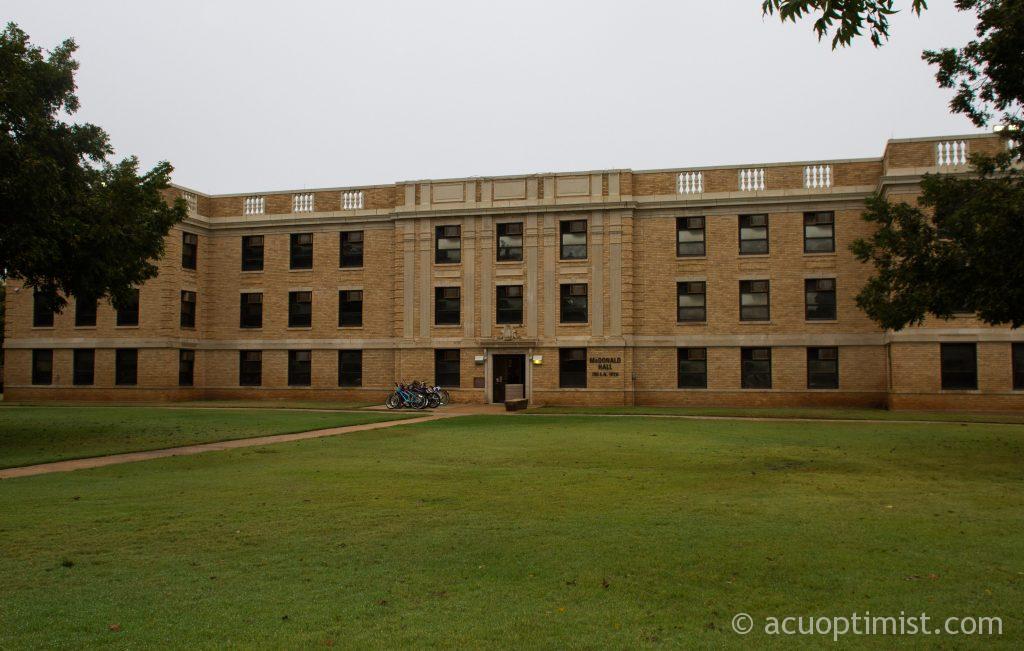Female freshman and sophomore residence McDonald Hall will shut down for the next two academic years to save operating costs.
Bart Herridge, dean of retention, said the hall will not be permanently closed, but after two years his office will reconsider how to use the building. The university will save operating costs of at least $70,000 per year and a total of $140,000 over two years, Herridge said.
The hall currently has 56 beds for freshmen and sophomore women who choose to have a single room with no roommate. Three residence life employees staff the hall, including two resident community leaders and one senior community leader. Those positions were not hired for next year. Using enrollment projections for the next two years, Herridge said Residence Life has calculated that the hall will not be needed for the next two years.
“We were trying to decide, is there a way that we can help alleviate some cost issues but also create better environments within the residence halls?” Herridge said. “That’s a number of beds that we can afford to take offline.”
Because the freshman class was smaller than the last two years, Residence Life has had more rooms than needed, Herridge said. Smith-Adams Hall and Nelson Hall were at only two-thirds capacity this year.
“We don’t want to be at 100 percent capacity in all of our buildings, but we do want to have them full enough that we create communities,” Herridge said.
Built in 1929, McDonald Hall is heated and cooled through window units, which are not cost-efficient. The rooms are also all different sizes, so many students didn’t know how big their room would be until they moved in. McDonald Hall provided single rooms to students who wanted or needed one, but even without the hall, Herridge said there will still be single-bed rooms for students who need it for medical reasons.
“We’re having a long-term conversation about residence halls in general,” Herridge said. “We know that we need to do updating, renovations; we need more common spaces.”

